External links
- Full text at the Internet Archive
| Author | Joel Spring |
|---|---|
| Subject | Education |
| Publisher | Black Rose Books |
Publication date | 1975 |
| Pages | 154 |
A Primer of Libertarian Education is a 1975 book by Joel Spring on the tradition of libertarian (anarchist) education.
Sam Dolgoff (1902–1990) was an anarchist and anarcho-syndicalist from Russia who grew up and lived and was active in the United States.
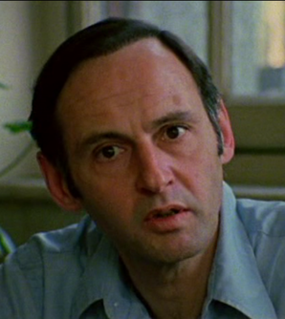
Paul Avrich was a historian of the 19th and early 20th century anarchist movement in Russia and the United States. He taught at Queens College, City University of New York, for his entire career, from 1961 to his retirement as distinguished professor of history in 1999. He wrote ten books, mostly about anarchism, including topics such as the 1886 Haymarket Riot, 1921 Sacco and Vanzetti case, 1921 Kronstadt naval base rebellion, and an oral history of the movement.
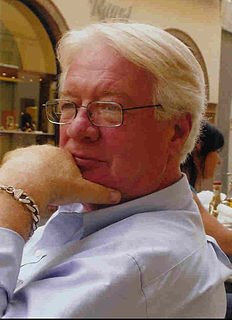
Tibor Richard Machan was a Hungarian-American philosopher. A professor emeritus in the department of philosophy at Auburn University, Machan held the R. C. Hoiles Chair of Business Ethics and Free Enterprise at the Argyros School of Business & Economics at Chapman University in Orange, California until 31 December 2014.
Libertarianism is a political philosophy that upholds liberty as a core principle. Libertarians seek to maximize autonomy and political freedom, minimize the state; emphasizing free association, freedom of choice, individualism and voluntary association. Libertarians share a skepticism of authority and state power, but some libertarians diverge on the scope of their opposition to existing economic and political systems. Various schools of libertarian thought offer a range of views regarding the legitimate functions of state and private power, often calling for the restriction or dissolution of coercive social institutions. Different categorizations have been used to distinguish various forms of libertarianism. Scholars distinguish libertarian views on the nature of property and capital, usually along left–right or socialist–capitalist lines.
In the United States, libertarianism is a political philosophy promoting individual liberty. According to common meanings of conservatism and liberalism in the United States, libertarianism has been described as conservative on economic issues and liberal on personal freedom, often associated with a foreign policy of non-interventionism. Broadly, there are four principal traditions within libertarianism, namely the libertarianism that developed in the mid-20th century out of the revival tradition of classical liberalism in the United States after liberalism associated with the New Deal; the libertarianism developed in the 1950s by anarcho-capitalist author Murray Rothbard, who based it on the anti-New Deal Old Right and 19th-century libertarianism and American individualist anarchists such as Benjamin Tucker and Lysander Spooner while rejecting the labor theory of value in favor of Austrian School economics and the subjective theory of value; the libertarianism developed in the 1970s by Robert Nozick and founded in American and European classical liberal traditions; and the libertarianism associated to the Libertarian Party which was founded in 1971, including politicians such as David Nolan and Ron Paul.
Joel H. Spring is an American academic at the City University of New York who specializes in American and global educational policy. His major research interests are history of education, globalization and education, multicultural education, Native American culture, the politics of education, and human rights education. He received his Doctor of Philosophy degree in educational policy studies from the University of Wisconsin–Madison.
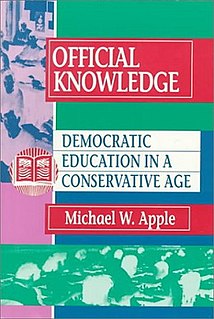
Official Knowledge: Democratic Education in a Conservative Age is a book written in 1993 by Michael Apple about the inherent politics of educational practice and policy. Its themes include right-wing cultural hegemony, control of textbook contents, and the role of private business in schools. It has received three editions.

Sasha and Emma: The Anarchist Odyssey of Alexander Berkman and Emma Goldman is a 2012 history book about Alexander Berkman and Emma Goldman. The book was co-authored by the father-daughter pair Paul and Karen Avrich, and posthumously published after Paul's death. It was a New York Times Book Review Editors' Choice for 2012.

Anarchist Voices: An Oral History of Anarchism in America is a 1995 oral history book of 53 interviews with anarchists over 30 years by Paul Avrich.

An American Anarchist: The Life of Voltairine de Cleyre is a biography of Voltairine de Cleyre by Paul Avrich.

The Haymarket Tragedy is a 1984 history book by Paul Avrich about the Haymarket affair and the resulting trial.
The Anarchists is a 1964 history book about the history of anarchism by James Joll.

The Community of Scholars is a 1962 book about higher education by Paul Goodman with his observations on its function and proposals for its future.
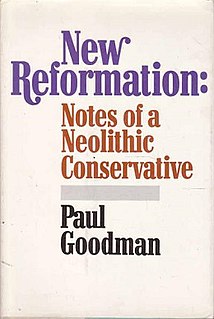
New Reformation: Notes of a Neolithic Conservative is a 1970 book of social commentary by Paul Goodman best known as his apologia pro vita sua before his death two years later.
Milton Gaither is an historian of education and a professor at Messiah College. Some of his most notable works include American Educational History Revisited, on the historiography of American education, and Homeschool: An American History.
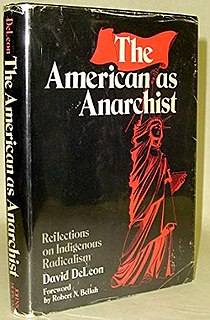
The American as Anarchist: Reflections on Indigenous Radicalism is a history book about the role of Protestantism, capitalism, and American geography in developing American libertarian sentiment.
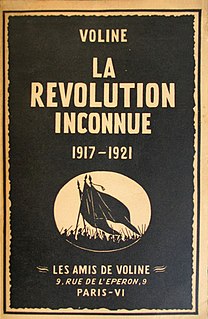
The Unknown Revolution is a 1947 history of the Russian Revolution by Voline.
Anarchist archives preserve records from the international anarchist movement in personal and institutional collections around the world. This primary source documentation is made available for researchers to learn directly from movement anarchists, both their ideas and lives.
David F. Labaree is a historian of education and Lee L. Jacks Professor of Education at Stanford University.